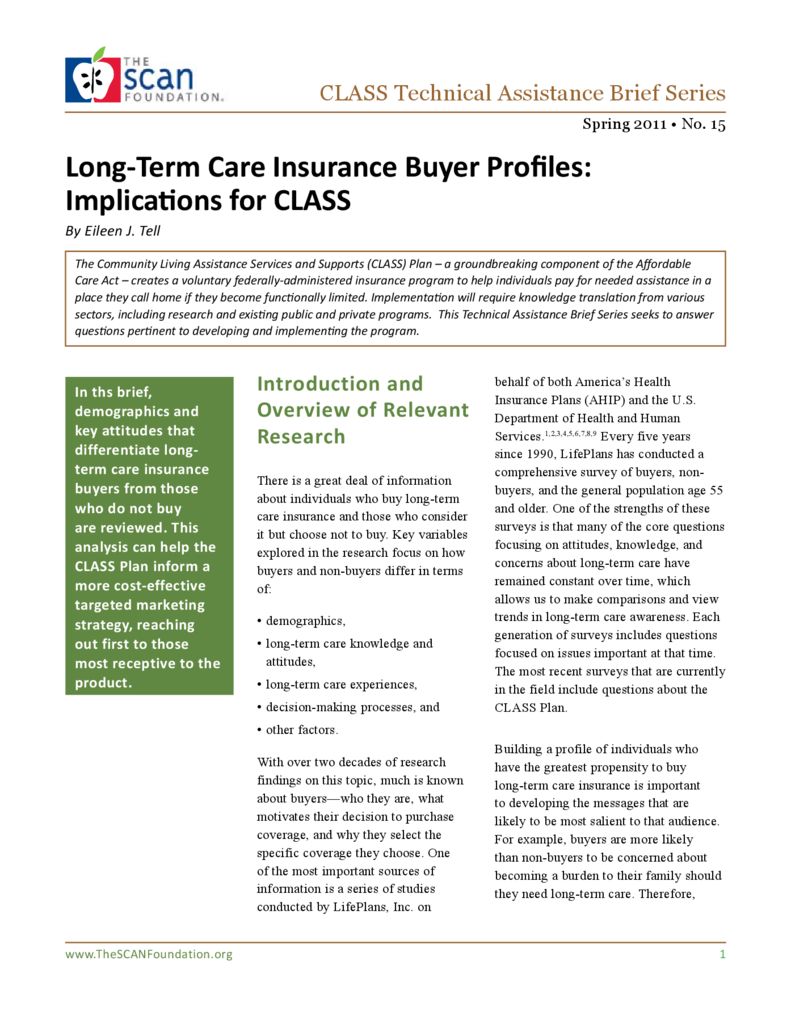Long-Term Care Insurance Buyer Profiles: Implications for CLASS
summary
In this policy brief, demographics and key attitudes that differentiate long-term care insurance buyers from those who do not buy are reviewed. This analysis can help the CLASS Plan inform a more cost-effective targeted marketing strategy, reaching out first to those most receptive to the product.
Date Updated: 04/06/2011There is a great deal of information about individuals who buy long-term care insurance and those who consider it but choose not to buy. Key variables explored in the research focus on how buyers and non-buyers differ in terms of demographics, long-term care knowledge and attitudes, long-term care experiences, decision-making processes, and other factors…
Download the publication for all visuals and complete references.
Continue Reading
This policy brief provides an introduction to The SCAN Foundation’s CLASS Technical Assistance Brief Series, which explores many of the critical issues to be considered for successfully implementing CLASS.
This policy brief describes the broad needs of individuals with disability and the wide range of supportive and environmental solutions that can allow for the most independent living possible. It suggests how findings on social and environmental supports for individuals with disability can inform implementation of CLASS.
This policy brief provides background on the historical development of benefit eligibility triggers in the private long-term care insurance market. Understanding how these triggers came into being can provide important information to those charged with implementing the CLASS Plan.


